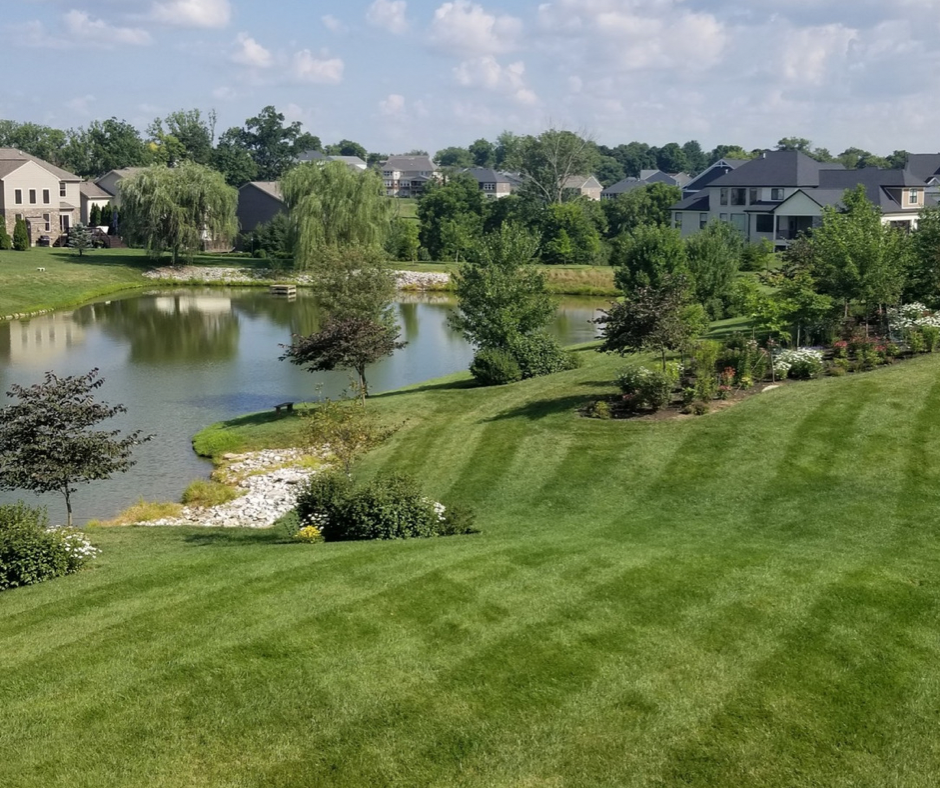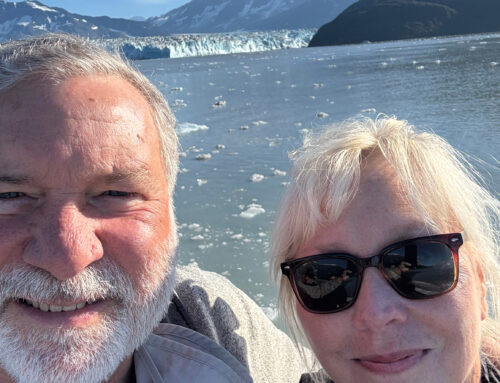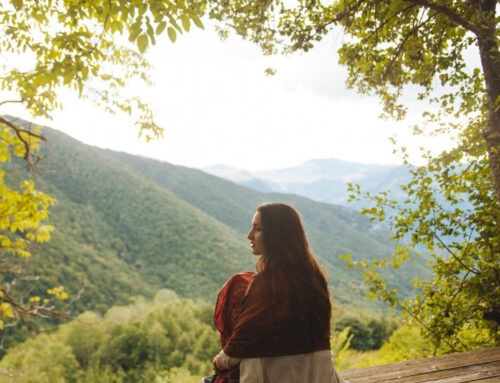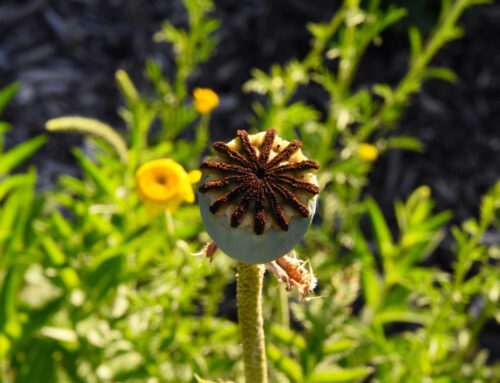 Ponds, lakes, and other water features are a terrific way to add beauty, function, and environmental benefits to your property and neighborhood. A few years ago, when I was in the market for property to build our home, I specifically looked for land which bordered a lake. Fortunately, I found a couple of undeveloped lots, pieced them together, and created a four-acre parcel which hugs one side of a large pond. Not huge, but after planting a ton of trees, shrubs, and flowers, our little acreage offers us the feeling of living in the country instead of a suburban sub-division. Marty and I are both nature lovers. We love to fish and paddleboat, and for us, living next to a pond has been wonderful. However, like most things, owning property next to a body of water has its pros and cons, with each point dependent upon on one’s perspective, likes and dislikes, and personal needs.
Ponds, lakes, and other water features are a terrific way to add beauty, function, and environmental benefits to your property and neighborhood. A few years ago, when I was in the market for property to build our home, I specifically looked for land which bordered a lake. Fortunately, I found a couple of undeveloped lots, pieced them together, and created a four-acre parcel which hugs one side of a large pond. Not huge, but after planting a ton of trees, shrubs, and flowers, our little acreage offers us the feeling of living in the country instead of a suburban sub-division. Marty and I are both nature lovers. We love to fish and paddleboat, and for us, living next to a pond has been wonderful. However, like most things, owning property next to a body of water has its pros and cons, with each point dependent upon on one’s perspective, likes and dislikes, and personal needs.
So, here are seven pros and cons to consider before deciding to live next to a pond.
PROS
- A pond offers a valuable water source for wildlife. It not only offers water for plants and animals, but it also offers protection and provides diversity for land and aquatic species.
- Water sources such as lakes and ponds offer a variety of food for all levels of plants and animals within the food chain.
- Ponds support beneficial animals, such as fish, frogs, dragonflies, and damselflies which eat mosquitoes and other pests.
- Lakes and ponds offer privacy and peace and quiet for homeowners.
- Property values usually see sharp increases each year when they border a lake or pond.
- Ponds and lakes can offer outstanding fishing opportunities and a plethora of water-based recreational activities for families and friends. They also provide great opportunities to teach kids about natural wildlife, the environment, and conservation.
- The beauty and esthetics of living next to a body of water cannot be overstated. Marty and I often spend hours by the water relaxing, reading, or simply listening to the frogs and birds. Our pond has become an integral component of our little slice of heaven.
CONS
- A pond can attract nuisance or invasive vegetation. For example, although beautiful, Purple Loosestrife is an aggressive plant which can quickly overpower and outcompete other natural area plants. The same can be said for Yellow Flag Iris. Before deciding to buy any bog-friendly plants, please review the noxious plant list for your area and monitor new arrivals to your pond often.
- A pond will attract a multitude of wildlife, such as raccoons, geese, snakes, and muskrats. Some people will love this, others, not so much.
- A pond will offer you privacy, but it may also encourage trespassers, and looky-loos. This will be especially true if your pond has game fish in it. Our neighborhood pond is private, surrounded by homes, and has clearly visible No Trespassing and No Fishing Signs placed around it. Nevertheless, every Spring and Summer, homeowners are forced to ask a few trespassers (usually kids wanting to fish, swim, and party) to move along. Fortunately, we haven’t had any serious problems, but it can be a bit annoying – especially when the partiers are standing RIGHT NEXT to a No Fishing sign while throwing their empty beer cans into the water.
- Ponds may require work. Depending on the type of pond you have (e.g., man-made, vs. retention, vs. natural pond), educate yourself with the maintenance requirements of each. Most natural ponds or well-constructed retention ponds require little intervention, especially if they are naturally spring-fed and/or have ample inflow/outflow routes. However, if the pond does require maintenance, make sure you know if your HOA or local government is responsible for routine care or if it is the homeowners’ responsibility. No one wants to live next to foul-smelling water or experience unexpected flooding during heavy rains. Not only will these issues create an insurance nightmare, but stagnant water will also be a haven for mosquitoes and their larvae.
- Land values for homes built next to water usually increase each year, but so do their taxes.
- Lakes and ponds can be a serious safety hazard, especially for young children. Unfortunately, thousands of kids die each year from unintentional drowning. If you decide living next to a pond or lake is in your future, make sure you have a well-communicated water safety plan.
- Ponds are full of life. Water features will bring all sorts of animal visitors into your backyard – and that means honking geese, croaking frogs, mating snakes, burrowing muskrats, birthing deer, foraging raccoons, and …..well, you get the picture. If you’re not a nature lover, you may have your idyllic vision of a home on the lake shattered when passionate, mating geese wake you at 4 a.m. or a herd of deer destroy your garden.
Is living next to a pond worth it? It depends on many factors. However, for Marty and me, it has been an incredible experience.
What are your thoughts about living next to a pond?








